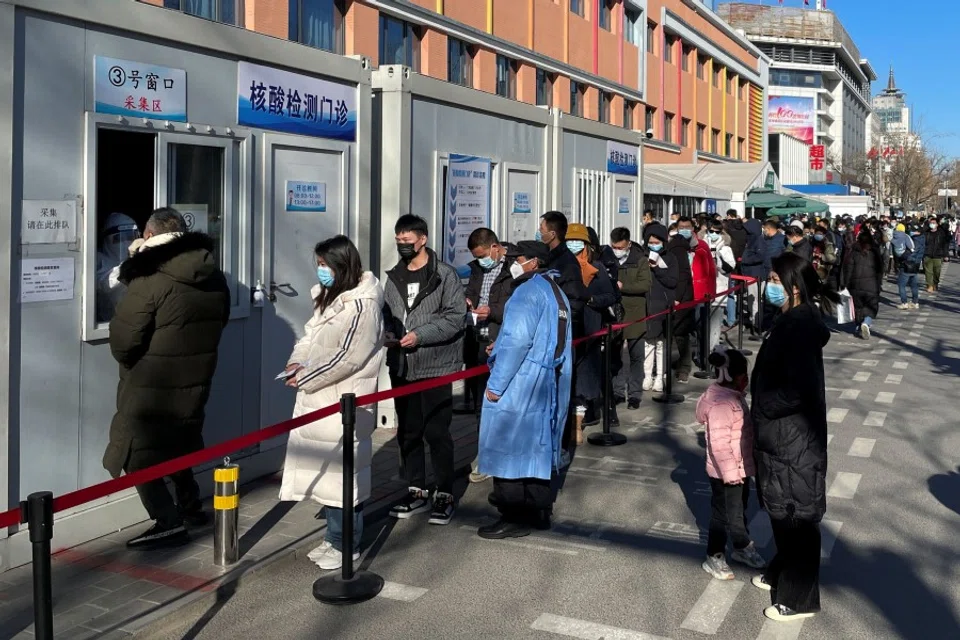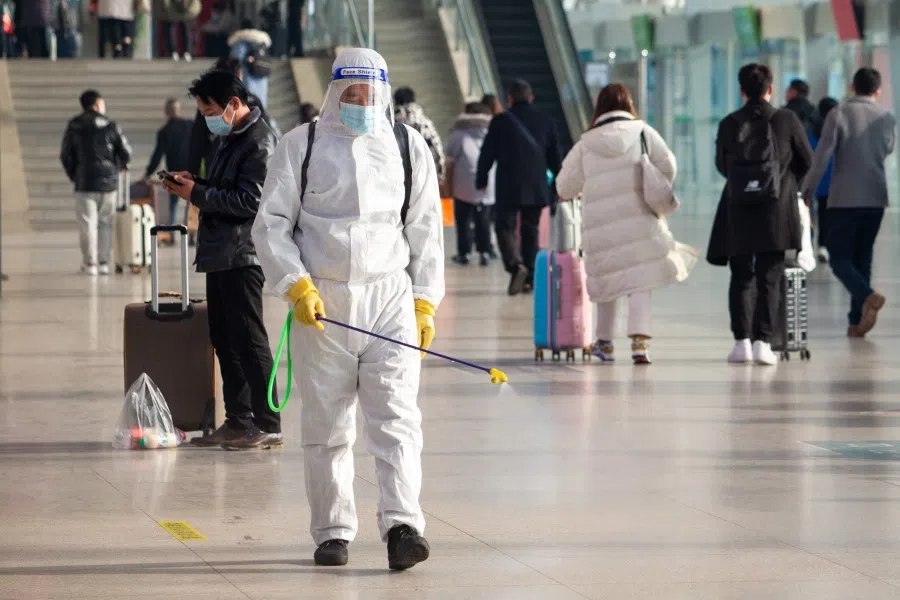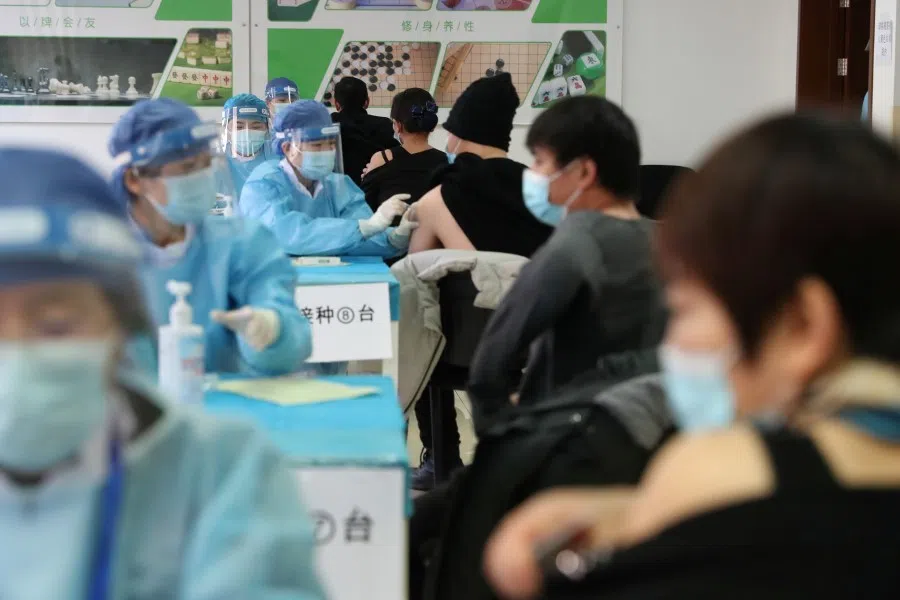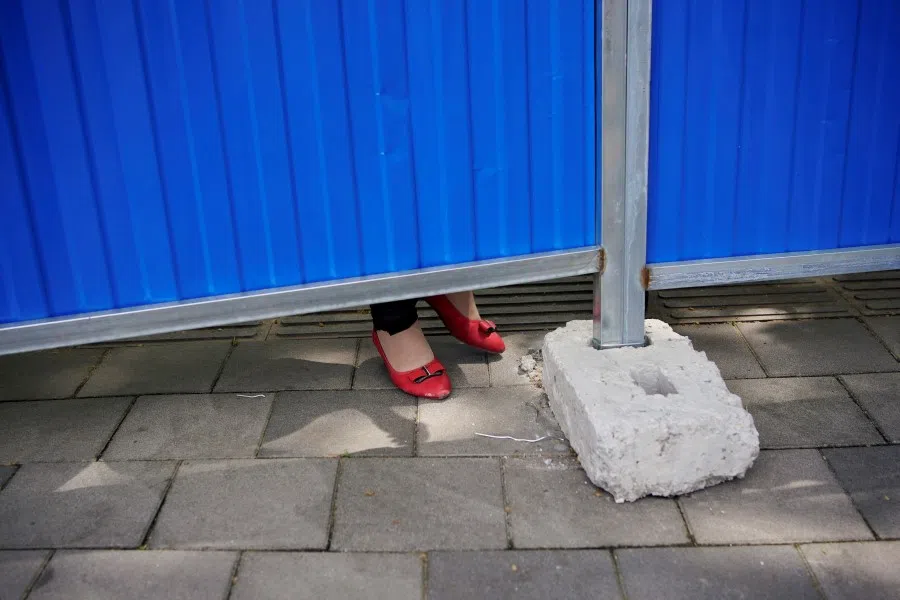China needs to break free of its zero-Covid policy. Here's how.
With its dogged implementation of the zero-Covid policy, China has painted itself into a corner and is now saddled with four shackles that prevent it from changing course. Lu Xi explains the factors involved and suggests how China may slowly begin to extricate itself from its predicament.

As Xi'an attempts to return to a zero-Covid state following its recent outbreak, some appalling events have taken place. These range from the entire city being locked down to difficulties accessing daily necessities and food; society coming to a standstill with children kept away from school and working from home arrangements encountering obstacles; a single confirmed case causing thousands to be herded away from their homes for quarantine; the poor having to live on the streets, or even making much longer detours just to save on quarantine fees; a heavily pregnant woman suffering a miscarriage due to harsh lockdown measures and a patient losing his life to a heart attack because he did not receive timely treatment.
As the rest of the world moves away from lockdowns and towards coexisting with Covid-19, one cannot help but ask how the zero-Covid policy which China prides itself on ended up like this, and what the future holds for it.
Undeniably, the Chinese government has the wherewithal to stick to a zero-Covid policy, because the price it has to pay is nothing when you consider its size. Many people have been singing its praises, but few have noticed that in doing so, China has shackled itself with heavy burdens in its battle with Covid-19.
Political legitimacy at stake and lack of public education
The first shackle is that of political legitimacy. As the pandemic evolves, the relevant government policies need to change as well. Wagering government legitimacy on the success of one particular policy is a gamble with no regard for the consequences. The bet is that like the wind, the pandemic would come and go just as quickly, and sticking with a zero-Covid strategy to the end would eventually represent a victory for the regime and the Chinese people.
However, battling Covid-19 is a science problem and viruses do not gamble. As Covid-19 gradually becomes more like influenza, if the virus does not suddenly disappear, how will these nationalists get themselves out of this wager they entered?
To show that it is correct in enforcing a zero-Covid policy, the Chinese government has exaggerated and cherry-picked pandemic news from other countries, further fuelling public fears of the disease.

The second shackle is a lack of public education on Covid-19. Many in China have a limited idea of how the pandemic has developed over time, with their understanding restricted to the initial phase of the outbreak in Wuhan.
To show that it is correct in enforcing a zero-Covid policy, the Chinese government has exaggerated and cherry-picked pandemic news from other countries, further fuelling public fears of the disease. When Chinese infectious disease expert, Dr Zhang Wenhong, proposed living with the virus, the violent public backlash left almost no room for scientific discussion.
In some parts of the world, governments seek a tighter grip on the pandemic but the public would not have it. In the opposite scenario in China, even if the Chinese government decides to loosen its control someday, it will have to check if its people will agree.
The third shackle is the highly rigid bureaucracy in China. In this system where officials are accountable only to the higher-ups and subordinates are loaded with duties, effective communication is non-existent. The only way to react is to resort to shock responses repetitively, like a zombie.
To maintain a zero-Covid state, entire buildings or villages have been evacuated to the suburbs due to a single confirmed case, while residents with green health codes have been prevented from grocery shopping and firefighters were forced to scale walls, instead of using entrances, to put out fires. These absurdities point to a dysfunctional bureaucracy.
With extra measures being piled on at each level of government and the pushing of responsibilities to subordinates, grassroots officials have no choice but to shut the door on programmes supporting market and community participation, for fear of being implicated should something go wrong.
...the state of China's vaccination programme means that it has to stick to its zero-Covid strategy.
The fourth shackle is vaccine efficacy. The Sinovac vaccine offers lesser protection as compared to those from Pfizer and Moderna, especially when it comes to the Omicron variant. In the latest study led by Yale University, scientists found that two shots of the Sinovac vaccine did not provide any discernible protection against the Omicron variant, but a Pfizer booster following two doses of the Sinovac vaccine was able to produce antibody levels similar to those produced by two shots of the Pfizer vaccine. These findings are consistent with those from an earlier study conducted by two Hong Kong universities.

In Singapore, the government decided that starting from January this year, it will no longer consider those who had only received two doses of the Sinovac vaccine to be fully vaccinated. Vaccination is supposed to help a country better navigate pandemic challenges so that its people can go about their lives more conveniently, but the state of China's vaccination programme means that it has to stick to its zero-Covid strategy.
The four shackles have pinned China tightly to its zero-Covid path with little room for deviation. But while some of these cannot be unravelled in the near term, others can be loosened if the government has the appetite for change.
Policy differentiation needed for different cities
First, there is a need to quickly come up with Covid-19 management standard operating procedures (SOP) for all levels of government, so that so long as officials comply with the SOPs, they will not be held responsible for any unforeseen development. On the other hand, officials that fail to follow the SOPs would have to be taken to task.
The key to removing the rigid bureaucratic shackle lies in replacing the existing target responsibility system with standardised processes. While upper levels of government are in charge of policy formulation, the lower levels are responsible for their execution. At the same time, there should be room for market participation and community support, so that everyone can play their part.

Second, the current way of educating the public about Covid-19 has to change to keep them informed about the latest developments about the pandemic, and help the majority accept that Covid-19 is becoming influenza-like. This would lower societal tensions and the possibility of overreacting. At the same time, the government has to inculcate in its people a greater sense of personal responsibility in the prevention and treatment of Covid-19, so that they can manage mild infections on their own, thereby reducing the strain on public healthcare institutions.
Third, conduct trials of differentiated Covid-19 management measures in certain parts of the country. Last month, the State Council tasked each province to produce a list of border cities. In these cities, residents with jobs that require contact with people and goods from elsewhere would be subjected to more stringent quarantine measures. This would further increase the burden of local governments in their epidemic control efforts and is the exact opposite of having more flexible government policies.
What is worth considering is to boost vaccination rates in areas with adequate medical resources so that life can gradually go back to normal there, while tightening cross-regional epidemic control measures in the short term. The experience gained from these parts of the country can be used to evaluate relevant policies so as to forge a new path ahead.
With the painful lessons from a severely locked down Ruili still fresh in everyone's minds, Xi'an is now suffering the same. While China as a whole may be able to bear the cost of implementing a zero-Covid policy, sudden pressure points at any particular moment could be too much for most families to bear. The virus comes and goes without a trace and no one knows whether there will be a repeat of what took place in Xi'an, and if so, when and where this invisible enemy will strike. To coexist with the rest of the world in the long term, China needs to break free of its shackles and increase its policy flexibility.
Related: China's zero-Covid era to end after Chinese New Year? | Chaos in Xi'an: From zero-Covid to 'zero cases in communities' | Chaos in Xi'an: From zero-Covid to 'zero cases in communities' | Is a zero-Covid policy adversely affecting China's economic recovery? | Is China taking policies to the extreme to achieve zero-Covid? | China has a zero-Covid policy. Can it pull off a spectacular Winter Olympics?


![[Big read] When the Arctic opens, what happens to Singapore?](https://cassette.sphdigital.com.sg/image/thinkchina/da65edebca34645c711c55e83e9877109b3c53847ebb1305573974651df1d13a)


![[Video] George Yeo: America’s deep pain — and why China won’t colonise](https://cassette.sphdigital.com.sg/image/thinkchina/15083e45d96c12390bdea6af2daf19fd9fcd875aa44a0f92796f34e3dad561cc)